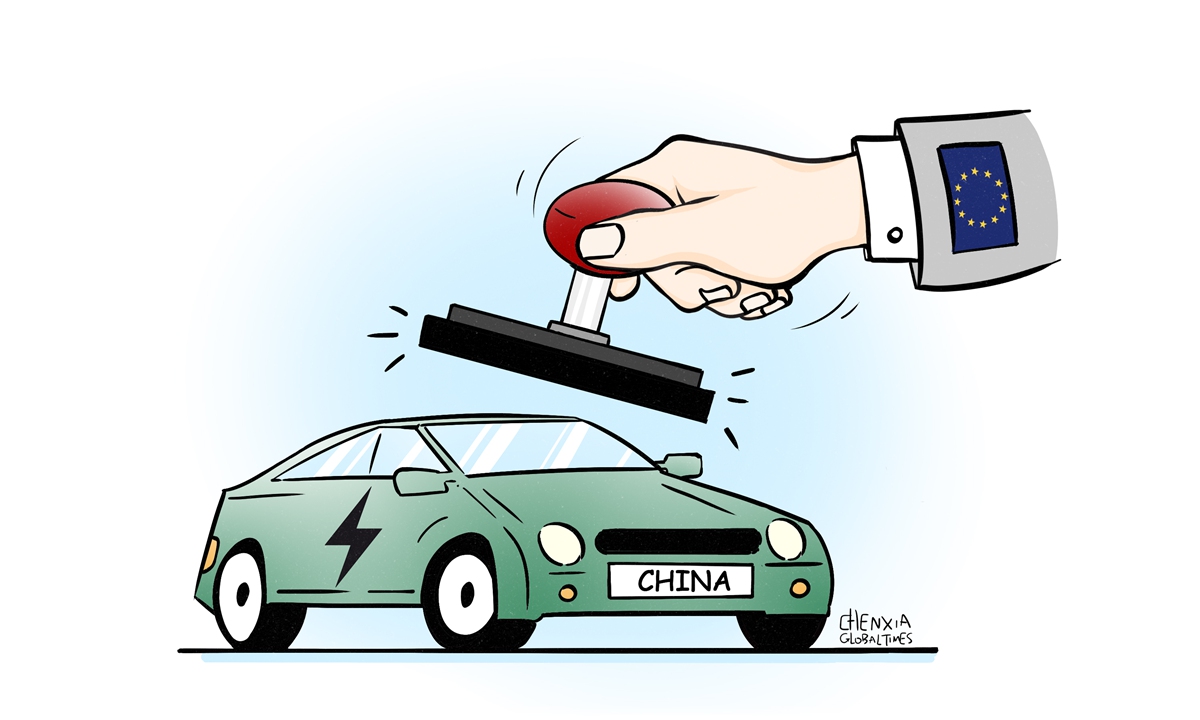The EU has taken a relatively active attitude on addressing climate change and promoting the green transition. The bloc launched the EU “Green Deal,” with the goal of becoming the world’s first “climate-neutral” continent by 2050. However, ahead of the European Parliament elections in June, there is growing concern among the public that Europe’s climate ambitions are shrinking and the EU Green Deal “collides with geopolitical and economic reality.”
It is a realistic problem for Europe to figure out how the Green Deal will adjust in the next stage and where the green transition will ultimately lead. The world is paying attention to these developments. However, Weber’s words represent the most absurd and dangerous direction. Weber appeared to be discussing the combustion engine ban; but, in fact, he was representing a force behind him to provide an excuse for the EU’s protectionism in the electric vehicle (EV) sector, while finding a scapegoat for the difficult situation that the bloc’s Green Deal is in. This does not hold up under scrutiny.
Europe is the continent with the fastest warming climate, with surveys showing that 77 percent of Europeans are very concerned about climate change. Recent reports from the EU also highlight the urgency of continuing to promote green transformation. Because of this, the EU has always set high emission reduction targets. Regardless of any problems that may arise during the actual implementation process, the EU should look for reasons within itself rather than blaming China. On the contrary, the EU’s commitments and written laws, if shaken just because China sold a few more EVs, would seem a bit cheap, wouldn’t they?
The EU, which includes the largest number of developed countries in the world, has a responsibility to take on more burdens in tackling climate change and take a few steps ahead. The international community also has expectations for the EU. However, there has always been a saying in the international public opinion arena that emission reduction is a “conspiracy” designed by the West to curb the industrialization of developing countries. To offset the influence of this claim, the West should show the greatest sincerity and take action first to take responsibility and provide as much assistance as possible to developing countries. This is the most direct and convincing way.
However, what is really seen by the international society is that the US and Europe have “flipped pancakes” or “taken small steps back” on the commitments they have previously made. The development of clean energy technology and industry in China provides huge possibilities for its own and global green transformation. Instead of being happy about this breakthrough belonging to all mankind, the West is trying to limit it with various smears and policy barriers. The international community cannot help but doubt: Is the West just “making empty promises” in emissions reduction? This suspicion is actually caused by the West itself, and its negative impact on the global joint efforts aimed at addressing climate change is significant, with even greater repercussions on the West’s reputation.
It is normal for the EU to encounter some practical difficulties in achieving emission reduction targets. As long as it holds a healthy mindset, it is easy to see that China is a help rather than a hindrance to the EU in terms of clean energy technology and industry. The EU has goals and needs, while China possesses technology and products, which could lead to a win-win result. EU officials have expressed “surprise” at the speed of China’s development of solar and wind power generation capacity. Isn’t there valuable knowledge to be gained from this experience for both China and the EU? China’s supply of products to the EU is far from “excessive.” Predictions from Western think tanks suggest that by 2030, the EU countries’ current plans will not be sufficient to meet the renewable energy needs of their entire population. By moving away from a narrow-minded geopolitical perspective, the cooperation space between China and the EU is vast and extensive.
At the COP28 UN Climate Change Conference last year, countries once again reached the goal of keeping the global temperature limit of 1.5 C within reach and transitioning from fossil fuels to renewable energy. Practicing this consensus is the shared responsibility of citizens of the global village. Green development is an ongoing marathon. We hope that the EU can work hand in hand with China for mutual cooperation and a win-win situation in the common green cause of humanity.












